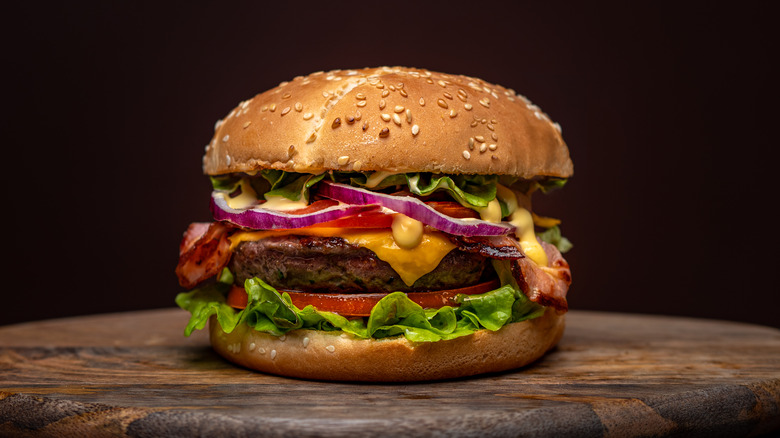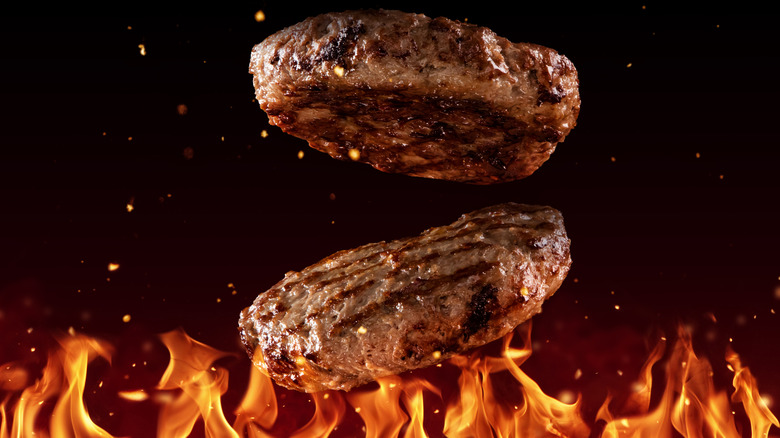Here's How Hamburgers Got Their Name
There's nothing more classic to North Americans than a burger and fries. So what does Germany have to do with our beloved burgers? Well, a lot more than you would think. A far cry from steak tartare, legend has it that the Baltic seaport sailors of Northern Europe are the ones who can be credited with how hamburgers got their name.
Based on etymology, Dictionary.com defines hamburger as a word from 19th century Germany, meaning "from the German city of Hamburg." However, the origin actually goes back a bit further in history. Though beef and mutton are likely to have been eaten for centuries, during the 13th century in Mongolia, the Tatars are known to have eaten raw, spiced mutton (via CNN).
With increased trade and travel, the next few centuries saw minced beef tartare being eaten by sailors around the Baltic Sea, until eventually reaching the German port of Hamburg where local preference meant the meat was instead cooked, according to the USDA. Known as the Hamburg steak or "frikadelle," raw meat was minced finely, seasoned simply, and formed into patties before being cooked and enjoyed by townspeople (via Parade).
The origins of the all-American burger
As Germans emigrated to the United States at the turn of the 20th century, so did the recipe for Hamburg steak. While several states that saw a rise in immigrant populations such as New York or Connecticut claim to be the birthplace of the modern burger, they tend to boast hamburger steak sandwiches. The hamburger that Americans recognize today (think: a fried ground beef patty topped with yellow mustard, onions, and pickles) actually appeared in 1904 at the St. Louis Louisiana Purchase Exposition (via Food & Wine).
With the attention brought to the sandwich during the world's fair, the hamburger grew in popularity and soon everyone knew the delicacy by name. According to Baruch College, when Americans tried to rename burgers as "liberty sandwiches" during World War I in an effort to remove any ties to German culture, the name proved impossible to change! With allegiance to its humble origins, the hamburger remains a tasty testament to good food and ultimate convenience, making it the ideal offering for fast food restaurants in the mid-1900s like White Castle and McDonald's.
While today's hamburgers can be quite complex, crafted with cuts of Kobe beef or chickpea protein patties, doused in all sorts of sauces, and topped with offerings as outrageous as black truffles, a simple beef burger remains one of life's greatest pleasures that even a German Hamburger would agree with.

